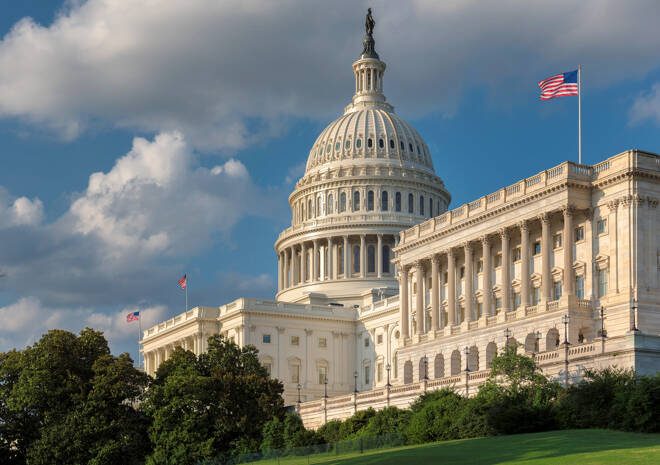Advertisement
Advertisement
The CFTC and the SEC to Battle It Out to Regulate Digital Currencies
By:
Digital currencies remain a hot topic amongst regulators, following the collapse of TerraUSD (UST). Both the CFTC and the SEC are eyeing oversight powers.
Key Insights:
- Gary Gensler and the Securities and Exchange Commission (SEC) continue to target the crypto market despite jurisdictional uncertainty.
- This week, the Lummis and Gillibrand bill filing aimed to give the CFTC the upper hand in regulating the crypto market.
- On Thursday, CFTC Commissioner Summer Mersinger said that crypto developers and US lawmakers are pushing for CFTC control.
The Securities and Exchange Commission has been particularly vocal about the digital currency space, with several platforms paying hefty fines.
Regulatory uncertainty has lingered despite the SEC’s successes in out-of-court settlements.
Until now, the Howey Test remains the fallback for the SEC to claim jurisdiction on digital assets, including XRP.
Such has been the uncertainty that even the SEC’s case against Ripple Lab has been ongoing since December 2020.
This week, however, there is the possibility of digital currencies falling under the watchful eye of the CFTC.
CFTC Commissioner Summer Mersinger Eyes the Digital Currency Space
Overnight, Commodity Futures Trading Commission (CFTC) Commissioner Summer Mersinger reportedly said that US lawmakers and crypto developers were looking to place the authority to regulate digital assets with the CFTC.
Currently, the CFTC regulates the crypto futures, which are limited to Bitcoin (BTC) and Ethereum (ETH) futures.
Regulatory chatter has picked up, with both the SEC and the CFTC laying claim to the digital asset space.
This week, however, lawmakers took a step forward in placing digital currencies under the CFTC.
Cynthia Lummis and Kirsten Gillibrand filed a bipartisan bill titled ‘The Responsible Financial Innovation Act.’
For investors and innovators, clarity on whether cryptos fall under the classification of a security or a commodity would remove a significant amount of regulatory uncertainty. Investors and developers will, therefore, be watching the progress on Capitol Hill.
SEC Chair Gary Gensler may not give in too easily in allowing the CFTC to oversee the digital asset space.
SEC Chair Gary Gensler Positions the SEC to Regulate Cryptos
In May, SEC Chair Gary Gensler talked of the need for comprehensive rules for digital assets.
Speaking at the International Swaps and Derivatives Association (ISDA) Annual Meeting, Gensler stated that most cryptocurrencies are securities.
Gensler reportedly said,
“Most crypto tokens involve a group of entrepreneurs raising money from the public in anticipation of profits – the hallmark of an investment contract or a security under our jurisdiction. Most crypto tokens are investment contracts under the Supreme Court’s Howey Test.”
This year, via letter, lawmakers questioned the SEC’s targeted approach towards crypto firms and raised concerns over how the SEC approach could impact innovation. As with The Responsible Financial Innovation Act, the letter was bipartisan. Members from both sides of the Aisle co-signed the letter.
With the CFTC and the SEC looking to regulate the digital asset space, it will likely boil down to the final version and passage of The Responsible Financial Innovation Act.
We can certainly expect some political wrangling in the corridors of power. Both regulators may consider the oversight of the digital asset space as the golden egg.
The crypto market will reflect its preference in the months ahead, with price action to closely reflect the bill’s passage.
About the Author
Bob Masonauthor
With over 28 years of experience in the financial industry, Bob has worked with various global rating agencies and multinational banks. Currently he is covering currencies, commodities, alternative asset classes and global equities, focusing mostly on European and Asian markets.
Advertisement
